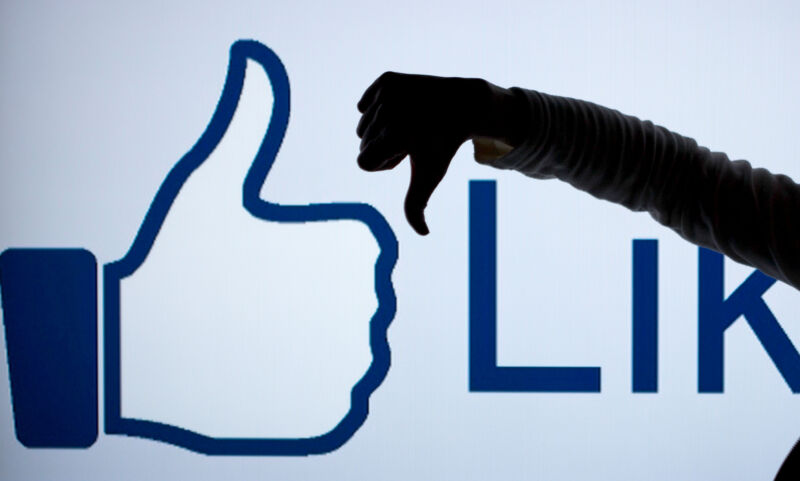
Wish 2021 had been a better year? Facebook probably does, too. The company has long been maligned by politicians, media observers, and consumer advocates, but it wasn’t until 2021 that it felt like the tide truly began to turn.
Though Facebook had faced scandals in the past, from Cambridge Analytica to the Myanmar genocide, this year’s string of missteps and revelations may have tipped the company and its reputation past the point of no return.
For Facebook, trouble started shortly after the new year. On January 6, the company found itself enmeshed in the insurrection at the US Capitol. Both Facebook and Instagram played a key role in radicalizing users who later attended the deadly rally. While the company had acted swiftly in November 2020 to shutter the “Stop the Steal” group formed to undermine the results of the presidential election, it let splinter groups and individuals spawn a “harmful movement” that spread across its platforms. For two months, those groups operated more or less unfettered.Then, during the insurrection, Facebook and Instagram served as a loudspeaker for the rioters, with violent content posted that afternoon up “more than 10-fold from the morning,” according to internal documents obtained by The Wall Street Journal.
Whatever corporate introspection the insurrection had inspired didn’t have a lasting impact. By March, Facebook was caught autogenerating pages for white supremacist groups, creating pages for groups like “Universal Aryan Brotherhood Movement” when someone would add the group’s name as an employer. Its moderation AI were being easily fooled by simple misspellings, like swapping S for $, which allowed many groups to operate unnoticed.
By the summer, the company began to feel the effects of Apple’s App Tracking Transparency feature that was introduced in iOS 14.5. While the company weathered the initial storm, it has likely lost billions of dollars as a result of users asking the company not to track them.
In September, Facebook was hit with a shareholder lawsuit that alleged the company had intentionally overpaid a $5 billion Federal Trade Commission fine. The agency had been considering holding CEO Mark Zuckerberg responsible for the Cambridge Analytica scandal, but the record fine put an end to that. Shareholders claimed that Facebook should have only paid about $105 million and that the additional $4.9 billion payment was a breach of fiduciary duty.
Whistleblower leaks
That lawsuit was just a blip compared with what was to come. The Wall Street Journal had been publishing a string of exposés based on particularly damning and detailed internal documentation it had obtained. Those documents revealed that the company used a different set of moderation rules for 5.8 million VIPs, that it was aware of how Instagram harmed teens’ mental health, especially that of girls. They detailed how Facebook failed to stop human traffickers and ethnic violence. The leaks kept coming.
Then, on October 3, Frances Haugen revealed herself as the whistleblower who had sent the WSJ the documents. She had also sent them to Congress and the Securities and Exchange Commission, where she sought whistleblower protection. After Haugen’s debut on 60 Minutes, she began a speaking tour of sorts, with stops at Congress, the European Parliament, and more. With each appearance, politicians' calls for regulations grew louder. Two days after Haugen went public, Facebook and many of its services suffered an embarrassing outage.Facebook had lost control of the narrative and was clearly in need of a distraction. CEO Mark Zuckerberg had spent the previous few months talking at length about the metaverse. To him, the metaverse would be a virtual environment in which people could chat, play games, hold meetings, and buy things (of course)—the sort of shiny new thing that leaders trot out when things are going bad. Here was something new the company could sell to consumers who had grown tired of the company’s old platforms. It was also something dispirited employees could work toward that wasn’t tainted with scandal.
But the metaverse would take years to realize, and Facebook’s problems were pressing. After enduring a month of unflattering revelations, Zuckerberg announced that Facebook was renaming itself as Meta.
While the decision wasn’t a surprise, its timing was. The company seemed ill prepared for the change, and investors have speculated that the company rushed the name change because of Haugen’s testimony. Indeed, to this day, Facebook press requests receive replies from “@fb.com” accounts. Perhaps the Meta rebranding is another distraction for an already distracted company.
Will “Meta” be enough to save the company’s reputation? That remains to be seen. Once companies reach the size that Meta has, they tend to have very long lives. What shape that life takes, well, that’ll be up to Zuckerberg to decide.
reader comments
242